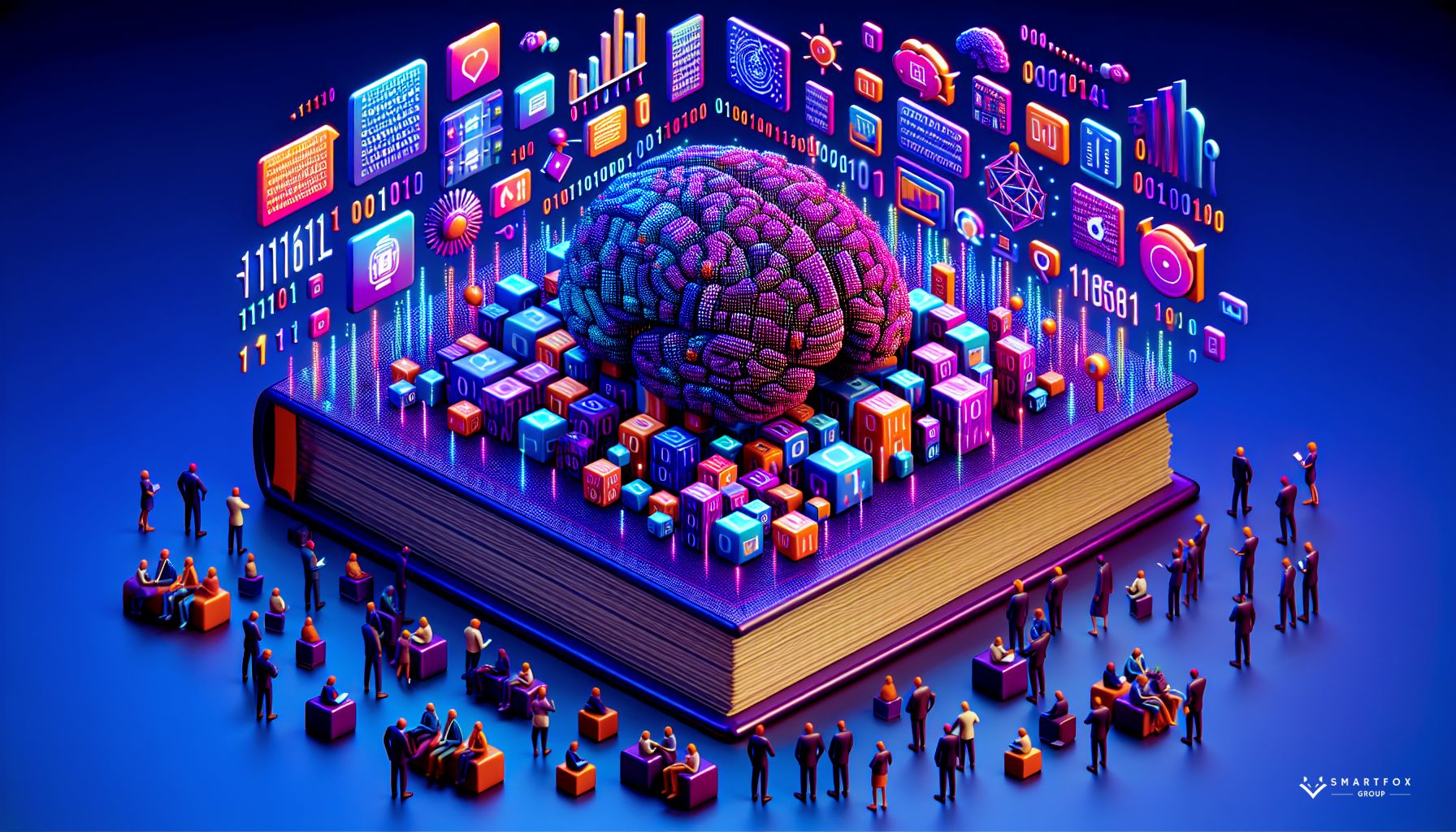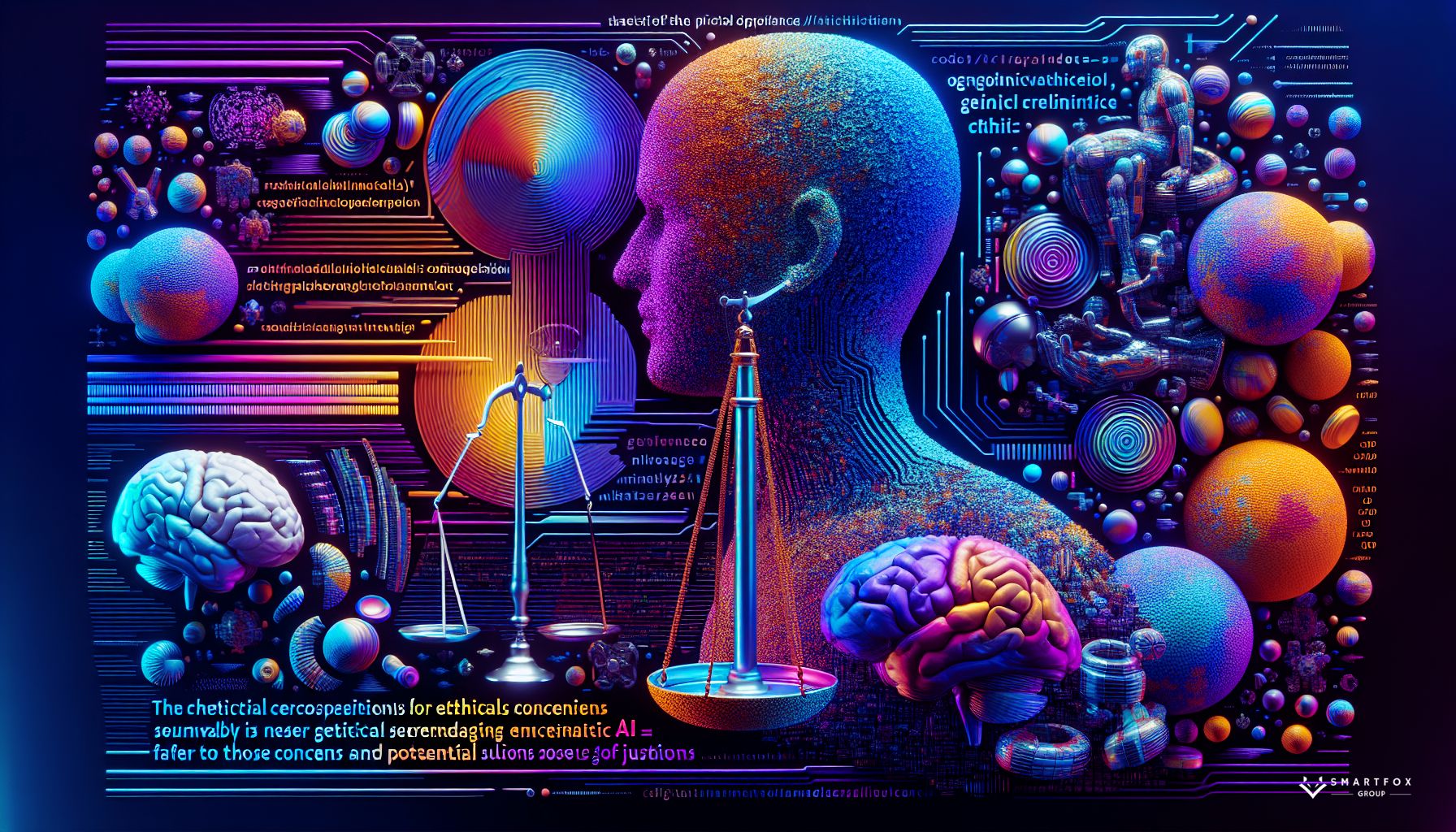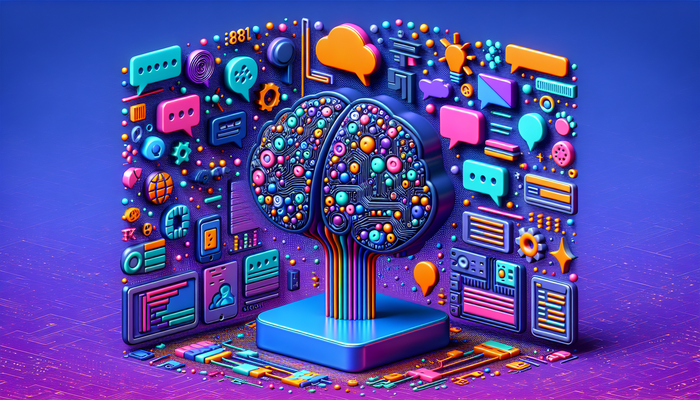What is Artificial Intelligence?
Artificial Intelligence (AI) is a technological concept that refers to the development of systems capable of imitating human-like intelligence and performing certain tasks autonomously. AI is based on algorithms and machine learning, allowing computers to learn from data, recognize patterns, and make decisions. This technology has made significant strides in recent years and is already being used in various fields.
AI can be divided into two main categories: weak AI and strong AI. Weak AI, also known as Narrow AI, is limited to specific tasks or application areas, such as speech recognition or image classification. On the other hand, strong AI refers to systems that possess general understanding and problem-solving capabilities, comparable to human intelligence.
The Significance of Artificial Intelligence in the Business World
Artificial Intelligence has gained immense significance in today’s business world. Companies utilize AI to optimize their processes, enhance efficiency, and develop innovative solutions. AI systems have the ability to analyze vast amounts of data, identify patterns, and derive insights critical for business growth.
One area where AI is already widely deployed is marketing. Companies employ AI-powered analytics tools to understand customer behavior, execute personalized marketing campaigns, and improve customer satisfaction. By leveraging AI, businesses can also optimize their sales and customer service processes by deploying chatbots and intelligent assistant systems to address customer inquiries and resolve issues.
Moreover, AI is being used in logistics and supply chain management to optimize transportation, reduce delivery times, and lower costs. The automotive industry is heavily investing in self-driving vehicles supported by AI-driven systems. In the finance sector, banks and investment firms utilize AI for automated trading decisions, fraud prevention, and risk management.
The Impact of AI on the Business Landscape
The impact of AI on the business landscape is tremendous and transformative. It is reshaping the way companies operate and create value. Here are some of the key impacts of AI on the business world:
- Efficiency Enhancement: AI enables companies to automate repetitive tasks and optimize processes. This saves time and resources that can be redirected towards more important endeavors. For example, utilizing AI-powered chatbots improves customer service while reducing the workload on employees.
- Data Analysis and Insights: AI systems have the capability to process large volumes of data and derive valuable insights. Companies can leverage these insights to make informed business decisions, identify trends, and gain competitive advantages.
- Personalized Customer Experiences: Through the use of AI, companies can provide personalized customer experiences. AI-based recommendation systems analyze customer behavior and preferences to offer tailored products and services. This contributes to customer retention and revenue growth.
- Risk Management: AI can assist companies in identifying and managing risks. By analyzing data, AI systems can detect potential threats or deviations and take appropriate measures. This is particularly crucial in areas such as cybersecurity and finance.
- Foster Innovation: AI provides companies with the opportunity to develop innovative products and services. By leveraging AI-driven algorithms, businesses can find new solutions to meet customer needs and differentiate themselves from the competition. AI can also assist in product development and design processes by highlighting optimization and improvement opportunities.
AI in Medicine: Advancements and Challenges
Artificial Intelligence has also facilitated significant advancements in the field of medicine. AI-based diagnostic systems can detect diseases early and improve diagnostic accuracy. By analyzing medical images, AI systems can identify tumors or anomalies that are difficult for the human eye to detect.
Furthermore, AI systems can assist doctors in complex surgical procedures by providing precise information and assisting in surgical planning. AI-driven robots can also be employed in minimally invasive surgeries to perform precise and gentle interventions.
However, there are also challenges associated with the application of AI in medicine. Data privacy and ethical considerations are crucial aspects that must be taken into account. Ensuring the secure handling and processing of sensitive medical data is essential for safeguarding patient privacy. Clear guidelines and standards need to be established regarding the use of medical data, ensuring that the use of AI in medicine is ethically sound.
Another obstacle lies in the requirement for extensive and high-quality data for AI systems to yield accurate results. Gathering sufficient data and ensuring its representativeness and absence of biases pose challenges. Moreover, there is a risk of bias and discrimination if the training data is not sufficiently diverse.
Despite these challenges, Artificial Intelligence offers significant potential for advancements in medicine. It can assist doctors in making better decisions, improving diagnostic accuracy, and enhancing the efficiency of patient care.
Ethics and Data Privacy in Artificial Intelligence

The deployment of Artificial Intelligence raises important questions concerning ethics and data privacy. It is crucial to ensure that AI systems adhere to ethical principles and respect the protection of privacy.
Data privacy is also of paramount importance. Companies and organizations must ensure that the data collected is handled securely and confidentially. Transparency regarding data usage and user consent is critical to instilling public trust in AI systems.
It is also vital to address bias and discrimination. AI systems rely on data, and if that data is distorted or biased, it can lead to unfair outcomes. Therefore, regular evaluation and improvement of AI systems are necessary to ensure fairness and justice.
Overall, Artificial Intelligence poses significant opportunities while raising ethical and data privacy challenges. It is important to address these challenges and establish clear guidelines and standards for the development and implementation of AI.
Conclusion
Artificial intelligence (AI) is significantly revolutionising the economy and the business world, while also enabling advances in medicine. But it also brings challenges, particularly in data protection and ethics. Therefore, clear guidelines and standards for its use are needed, as well as collaboration between governments, businesses and society to ensure its responsible and sustainable use.
In a world increasingly shaped by AI, we are urged to always consider its responsible use and ethical implications. This is the only way AI can enrich our lives and positively impact our society. Artificial intelligence is undoubtedly a milestone and offers solutions to complex problems as well as new possibilities, but we must not forget that humans should always be at the centre. It is our responsibility to ensure that AI serves humanity and improves our world.
ㅤ














0 Comments